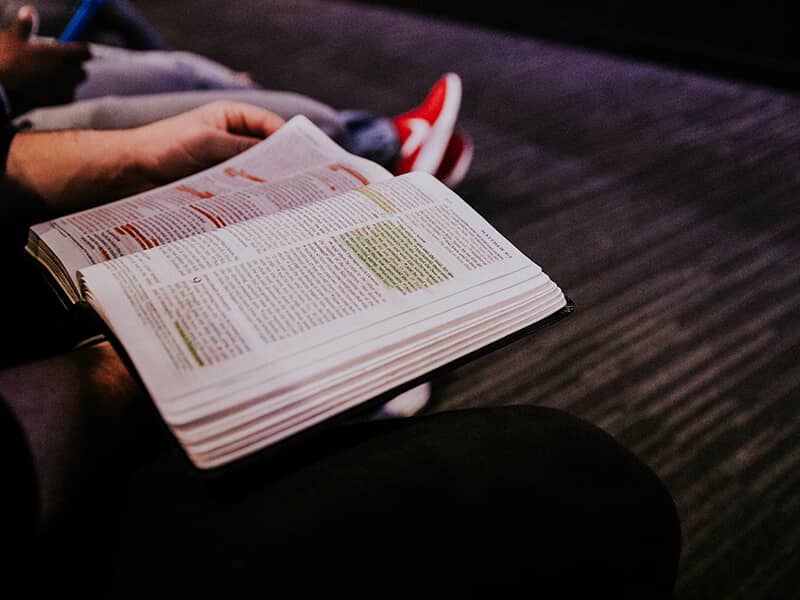Like no other time in recent history, Americans got religion. A Gallup poll showed that 47 percent of respondents said they had attended church or synagogue in the last seven days, a level rarely seen since the 1950s. A Harris Interactive poll found that 82 percent of Americans prayed or attended religious services the week of the tragedy.
But now, three weeks after the attacks, crowds in places of worship have been tapering. And while religious leaders hope that some of the new attendees will stick around, religious scholars are divided about whether the surge in interest in religious sanctuaries will last. "Attendance on that first Sunday was huge," said Reverend Elizabeth Braddon of the United Methodist Church in Park Slope, Brooklyn. "We haven't had that kind of attendance since, but I'd like to think it will always stay higher than before."
Benton Johnson, a religion professor at the University of Oregon, argues that religious services have provided ritual and sanctuary -- at a time when both were desperately needed. But, he says, that doesn't necessarily mean that thousands of people have suddenly decided to become regularly observant. "My guess is that most people who've gone into churches and synagogues haven't had their beliefs changed," he said. "They're going for ceremony, to show grievance and for community."
There's no doubt that Americans consider themselves a religious people. More than nine in 10 Americans -- 95 percent -- told ABCNEWS polltakers last year that they believe in God. A Gallup Organization survey for CNN and USA Today in December 1999 found that 94 percent believed in God, or in some form of "universal spirit or higher power."
But, Johnson says, in recent years the American perspective on religion has changed in a way that favors private worship over group services. "I think there's an increasing notion in this country that religion is 'my own private thing,'" he said. "The unwritten rule is I'll make no judgment about your religion provided you don't judge mine. And, overall, that's led to lower attendance."
People have also used religious centers as places to coordinate aid. Churches, synagogues, temples and mosques have collected food, clothes and other needed items for rescue workers at Ground Zero. Many, including Congregation B'nai Jershurun on Manhattan's Upper West Side, published Web pages with information on how to donate to groups aiding the crisis.
A turn to religion for ritual and community during a crisis may be expected and temporary, but some religious leaders and scholars say the sheer magnitude of this tragedy is bound to trigger a deeper spiritual response. "What happened after September 11 is what I call a seismic event," says Martin Marty, a professor emeritus of University of Chicago and religion scholar. "There's no way Americans can arrange their lives in the same way. And as long religious leaders can convince people they are offering a fabric of meaning you can't get anywhere else, then some will stay."
Assuming that more people may be turning to religion for spiritual guidance, groups have been quick to reach out and show what their faith can provide. Representatives of Baptists, born again Christians, Jews for Jesus, scientologists, Episcopalians, Hare Krishna and other followings were present in significant numbers near Ground Zero and at memorial sites on the days following the attacks. Some churches took out full-page advertisements in area newspapers, announcing their services.
Within two hours of the attacks, the American Tract Society had begun designing a new pamphlet advertising their faith in light of the tragedy. Robert Briggs of the American Bible Society said his privately funded group had published a booklet of tragedy-relevant scriptures within two days of the attacks and has since distributed more than 600,000 copies of the booklet. "This is a ripe opportunity for hope," said Reverend Trevon Gross of the American Bible Society in his Manhattan office. "We are not trying to capitalize on this tragedy, we just want to share in the strength of hope."
Even the government, some argue, has indirectly amplified the call to religion. In his public appearances, President Bush has repeatedly portrayed the struggle against terrorism as one between good and evil. "Freedom and fear, justice and cruelty, have always been at war, and we know that God is not neutral between them," Bush said in his address to a joint session of Congress on September 20.
Randall Balmer points out the last time U.S. political leaders drew the same analogy, the United States had entered the Cold War with the former Soviet Union. During the Cold War, attendance to religious services reached its highest level in years. Now, Americans are again facing a labeled "evil," he says, and many are bound to cope with that concept through religious observance. "We've had to consider anew the presence of evil," Balmer said. "And the place where evil is usually addressed is not the military or the government--it's in places of worship."

